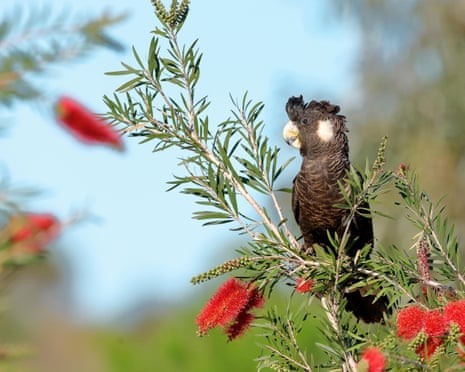The Australian government has signed a global pledge endorsed by more than 90 countries committing them to reversing biodiversity loss by 2030.
The prime minister, Anthony Albanese, announced Australia had joined the Leaders’ Pledge for Nature at an event taking place on the sidelines of the UN General Assembly in New York.
In a video message, he said Australia’s approach to environmental challenges had changed and the government understood climate change and the global loss of biodiversity were dual crises.
“This highlights Australia’s reinvigorated approach to protecting our environment and climate leadership and signals our solidarity with other world leaders in our commitment to taking strong action on the dual crises of biodiversity loss and climate change,” he said.
The Leaders’ Pledge for Nature is the same document the Morrison government refused to sign in 2020 because it called for commitments that were inconsistent with Australia’s policies at the time, including greater ambition to reduce greenhouse gas emissions.
The pledge was developed by the Alliance of Small Island States (AOSIS), Belize, Bhutan, Colombia, Costa Rica, the EU, Finland, Kenya, Seychelles, the UK and an alliance of organisations.
Countries that have endorsed the pledge have promised actions including stronger global effort to reduce deforestation, halting unsustainable fishing practices, eliminating environmentally harmful subsidies, and beginning the transition to sustainable food production systems and a circular economy during the next decade.
The document promises action to reduce biodiversity loss and stop human-caused extinctions of other species.
In December, countries will meet in Montreal for global talks aimed at securing a new global agreement for nature that has been likened to the Paris agreement for climate change.
Albanese told the event in New York that Australia understood “the urgency of the environmental challenges facing our planet and we’re committed to being a leader in the global fight to solve them”.
He noted Australia’s important position as one of only a handful of megadiverse countries that comprised 10% of the Earth’s surface but were home to more than 70% of its species.
“Working together we can better protect and conserve the world’s land, sea, waterways and cultural heritage for future generations,” he said. “Now is the time to act.”
WWF-Australia’s chief executive, Dermot O’Gorman, said the new government had signalled to other countries that the environment was back as a priority for Australia.
“We look forward to working with the government to ensure this pledge translates into action that helps regenerate Australia and supports our neighbours in the Asia Pacific,” he said.
after newsletter promotion
O’Gorman said Australia’s internationally prized landscapes were deteriorating and the country’s land-clearing and extinction rates were among the highest in the developed world.
The five-yearly State of the Environment report found the health of Australia’s environment was poor and deteriorating and at least 19 ecosystems were showing signs of collapse.
“We are on the frontline of the escalating nature crisis and we can play a global leadership role in addressing it,” O’Gorman said.
The chief executive of the Australian Conservation Foundation, Kelly O’Shanassy, said the prime minister’s announcement was promising.
“We see Mr Albanese’s involvement as an indication that the federal government will start to take the biodiversity crisis seriously,” she said.
She called on Albanese and the environment minister, Tanya Plibersek, to attend the UN biodiversity conference (Cop15) in Montreal in December.
“At present, Australia is failing to meet its international obligations,” she said. “Conservation efforts are hugely underfunded and only 100 of Australia’s more than 1,900 listed threatened species and communities are prioritised for recovery action.”
